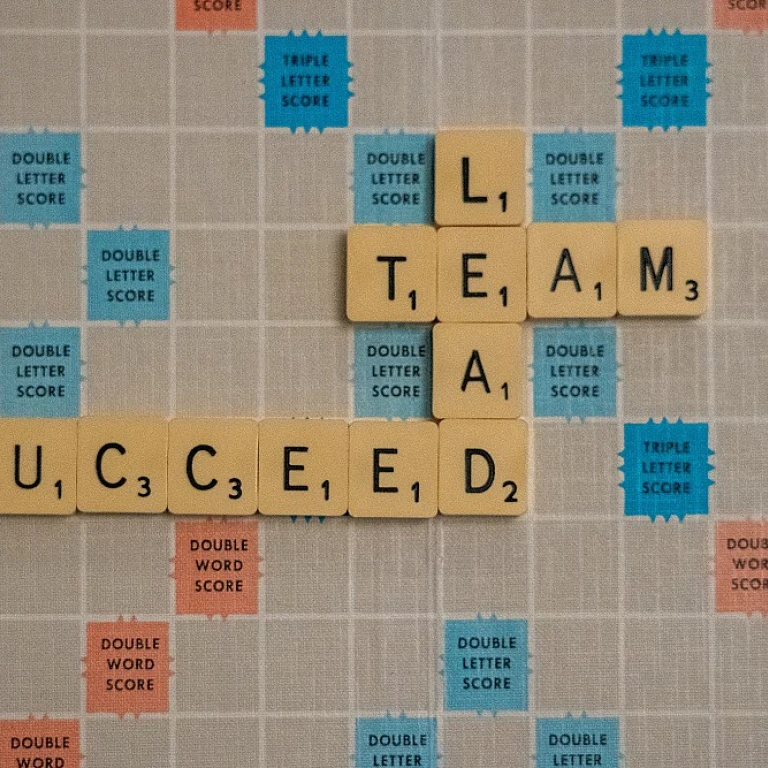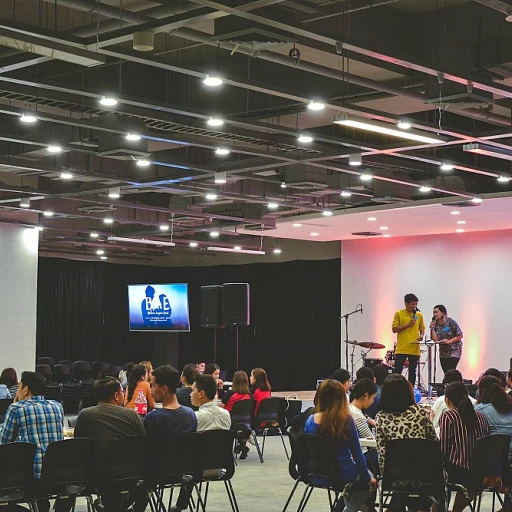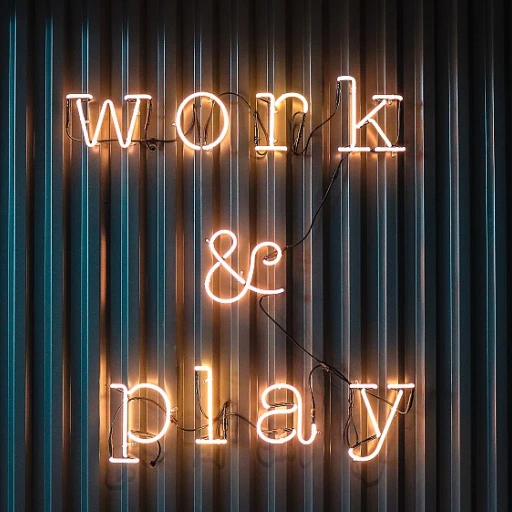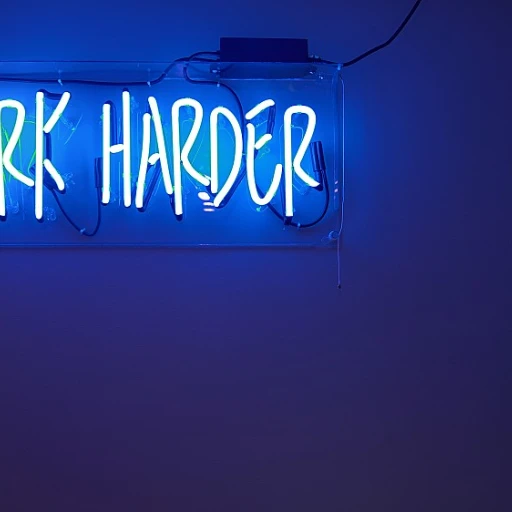Understanding the Need for Continuous Learning
The Importance of Embracing Lifelong Learning
In today's rapidly changing world, the concept of continuous learning has become more crucial than ever. As technological advancements and industry shifts reshape various sectors, the ability to adapt and acquire new skills can be the defining factor for both personal and professional success. Engaging in ongoing education not only equips individuals with the tools necessary to stay relevant but also fosters a sense of personal fulfillment and confidence.
By adopting a mindset of lifelong learning, individuals are better prepared to navigate the complexities of modern life and thrive in their careers. This commitment to keeping abreast of new information and developing skills can open up numerous opportunities for growth, both personally and professionally. For more insights into pursuing flexible educational paths, this article on flexible learning paths for personal growth offers valuable guidance.
As we move forward, it's essential to understand the various elements that contribute to effective continuous education, such as identifying personal learning styles and utilizing technology to enhance the learning experience. By recognizing the need for continuous learning, individuals take the first step toward integrating lifelong education into their daily lives and fostering a culture of perpetual growth.
Identifying Personal Learning Styles
Discovering Your Unique Learning Style
Understanding your personal learning style is a pivotal step in the journey of continuous education. Each individual has a unique way of processing information, and identifying this can significantly enhance the effectiveness of your learning strategies. Various models exist to help categorize learning styles, such as the VARK model, which stands for Visual, Auditory, Reading/Writing, and Kinesthetic. By recognizing your dominant style, you can tailor your educational experiences to better suit your needs.
Exploring Different Learning Modalities
Exploring different learning modalities can offer insights into how you absorb information best. For instance, visual learners benefit from diagrams and videos, while auditory learners might prefer lectures or podcasts. Those who lean towards reading/writing often find that taking notes or reading extensively aids retention. Kinesthetic learners, on the other hand, excel when engaging in hands-on activities. By experimenting with these modalities, you can determine which methods resonate most with you, paving the way for more effective learning.
Adapting Strategies to Your Learning Style
Once you have identified your learning style, adapting your strategies accordingly can lead to more efficient and enjoyable learning experiences. For example, if you are a visual learner, incorporating infographics and visual aids into your study routine can be beneficial. Meanwhile, auditory learners might find success in discussing topics with peers or using audio recordings. By aligning your learning methods with your personal preferences, you create a customized approach that enhances retention and understanding.
For more insights on enhancing your learning strategies, consider exploring continuous improvement through learning strategies for success.
Developing a Personalized Learning Plan
Creating a Tailored Path for Educational Success
In the journey of continuous education, developing a personalized learning plan is pivotal. Customizing your learning experience begins with acknowledging your unique learning preferences. Building on this understanding, the next step is organizing a strategic plan that aligns with your personal goals and professional aspirations.
Start by setting specific, measurable objectives that you want to achieve through continuous learning. It can be beneficial to break down these objectives into smaller, actionable steps. This helps in maintaining motivation and tracking progress more effectively. You can explore more about setting effective goals for your development in this detailed guide.
Your personalized learning plan should also incorporate a schedule that fits seamlessly into your daily routine. Flexibility is key here, as it allows you to adapt your learning process according to other commitments. Additionally, it's crucial to allocate time for reflection, which enables you to evaluate what you’ve learned and how it applies in real-world scenarios.
The resources you choose are another essential aspect of your plan. Leverage various learning modalities, such as online courses, lectures, or interactive workshops, to suit your preferred learning styles. This variety ensures a well-rounded understanding and engagement with the material.
Remember, the power of a personalized plan lies in its adaptability. As you progress, reassessing and fine-tuning your approach ensures that your learning path remains aligned with your goals and continues to be effective long term.
Utilizing Technology for Enhanced Learning
Embracing Technological Tools for Modern Education
In the age of digital transformation, technology plays a pivotal role in enhancing our learning experiences. Leveraging these tools effectively can make your journey of continuous education more engaging and efficient. Here's how you can make the most out of technology to support your learning strategies.- Digital Platforms and Online Courses
- Learning Apps and Tools
- Utilizing Multimedia Resources
- Adaptive Learning Technologies
- Staying Connected with Online Communities
Balancing Learning with Daily Life
Achieving Balance: Integrating Learning into Everyday Routines
Incorporating continuous learning into your daily routine requires intentional effort, yet it can seamlessly become a part of your life with thoughtful planning. Here are some strategies to help harmonize learning with your existing commitments:- Prioritize and Plan: Setting clear learning goals is essential. Just as you would set professional or personal goals, allocate specific times for learning activities. Consider using calendars or planners to schedule dedicated "learning blocks" consistently throughout your week.
- Incorporate Microlearning: When time is limited, microlearning can be a valuable approach. This involves breaking down learning into small, manageable segments, such as short videos or articles, fitting well into day-to-day routines.
- Leverage Commuting Time: Commutes can be opportune moments for learning. Listening to educational podcasts or audiobooks related to your field of interest can turn time spent in traffic or on public transit into productive learning sessions.
- Create a Dedicated Learning Space: Having a specific area in your home or workplace dedicated to learning can increase focus and productivity. This space should be free from distractions and stocked with all necessary materials.
- Stay Flexible and Adapt: Life is often unpredictable, and your learning plan should accommodate unforeseen circumstances. Adjust your schedule as needed to ensure a balanced approach to your education and daily responsibilities.
Evaluating Progress and Adapting Strategies
Measuring Your Learning Achievements
Evaluating your progress in continuous learning involves a comprehensive approach that incorporates your goals, learning style, and the resources you employ. Understanding how well your personalized learning plan aligns with these aspects is crucial for ongoing development. To effectively gauge your advancements, consider these key points:- Set Specific Benchmarks: Clearly defined objectives can serve as a helpful guide in monitoring your progress. Break down your long-term learning goals into smaller, manageable benchmarks to make tracking easier.
- Reflect on Personal Growth: Regular self-assessment allows you to identify both strengths and areas that need improvement. Consider keeping a learning journal to note down your achievements and any setbacks you've encountered.
- Seek Feedback: Engaging with peers, mentors, or instructors can provide valuable external perspectives. Constructive feedback can help you fine-tune your methods and reinforce your efforts.
- Adapt and Adjust: Your learning journey is not static. Be open to adapting your strategies as needed to better suit your evolving goals. If a particular method isn't working as expected, don't hesitate to explore alternative approaches that might be more effective.
- Technology Insights: Utilize technology to track and analyze your learning activities. Several apps and platforms can assist in monitoring your progress, offering insights and data about your learning patterns.








